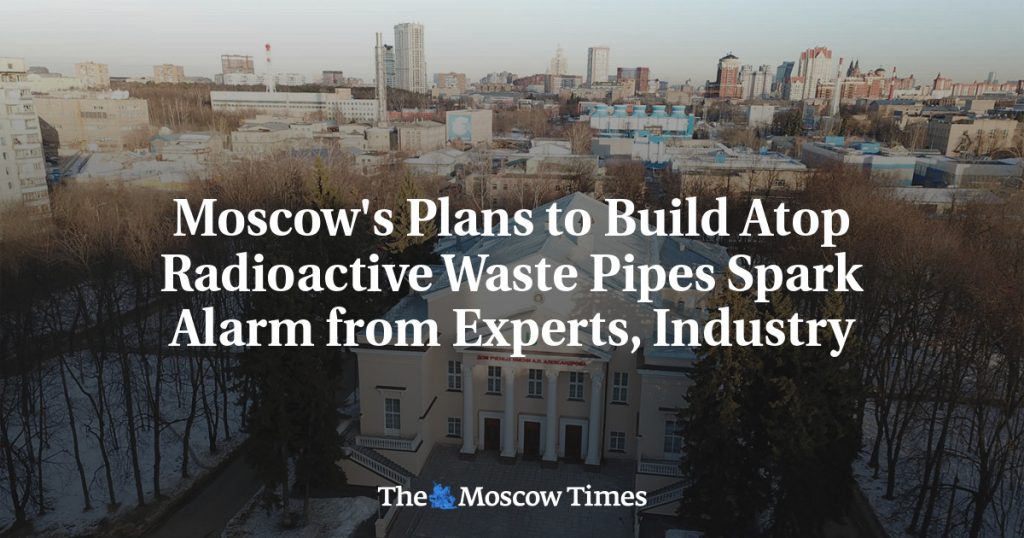Nearly four decades ago, the Soviet Union experienced the Chernobyl nuclear disaster, and now, in Moscow’s Shchukino district, a potential radioactive threat looms under underground pipes carrying liquid radioactive waste. Plans for new developments in the area include building business and residential buildings, a school, and a kindergarten. Experts warn that construction works could damage the pipes, leading to potential spills of radioactive waste into the environment. The pipes contain deposits of radioactive salts with various radionuclides, which could result in local contamination if spilled.
The Shchukino district in Moscow is home to several scientific institutions involved in nuclear research, generating nuclear waste that is transported via underground pipes to the liquid radioactive waste processing plant in the district. Due to the secrecy surrounding this nuclear cluster, the exact volume of radioactive materials and the potential impact of an accident remain unclear. Experts predict that a worst-case scenario could involve radioactive substances leaking into the ground and contaminating streams that feed into the Moskva River. The high radiation levels in the area pose significant risks to any construction plans.
Concerns have been raised about the instability of the land in Shchukino, which could be exacerbated by heavy construction machinery, potentially causing dangerous geological events. Local residents have voiced opposition to the development plans, citing oversaturation of the area with cars and buildings. Despite residents’ protests and a petition garnering over 1,200 signatures, the Moscow government is pushing forward with the project. Critics argue that the interests of developers and the construction industry are being prioritized over the concerns of local residents.
The conflict in Shchukino highlights the clash between developers’ interests and those of the state nuclear energy corporation Rosatom, which prefers the proper functioning and disposal of the hazardous waste carried by the pipes. The Bochvar Institute, which manages the pipes, has confirmed the threat posed by construction activities near the pipes and has warned about the potential impact on the site. The Moscow government has been absent from discussions on the issue, raising concerns about the lack of dialogue and transparency in the decision-making process.
Experts emphasize the need for transparency and caution in dealing with the radioactive waste in Shchukino to prevent potential accidents and long-term consequences. They call for the declassification of information about the pipes and the marking of a sanitary protection zone to prevent further construction in the area. Despite the risks involved, the Moscow government has not responded to requests for comment, raising fears about the lack of accountability in addressing the radioactive threat. Residents and experts continue to advocate for greater awareness and action to prevent environmental and health risks in the district.


